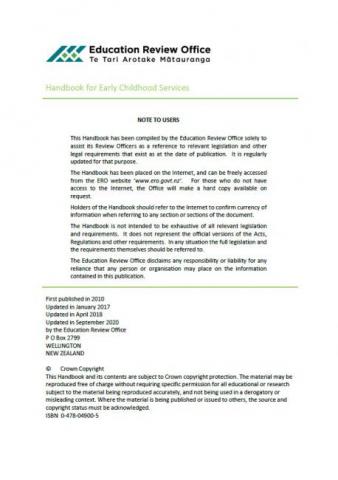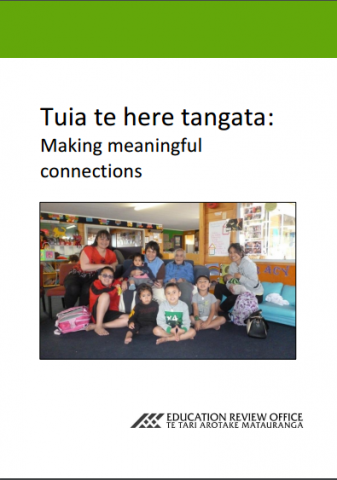Handbook of contractual obligations and undertakings – early childhood services
Published: 12 Apr 2021
This Handbook covers relevant legislation and requirements that early learning services and kōhanga reo must follow. Our review officers use this Handbook as part of their review. It does not represent the official versions of the Acts, regulations and other requirements. We recommend referring to the full legislation and requirements when needed.
- Audience:
- Early learning
- Education
- Māori-medium
- Content type:
- Basic page
- Topics:
- Early learning
- Home-based education
- Hospital-based education
- Kōhanga Reo






